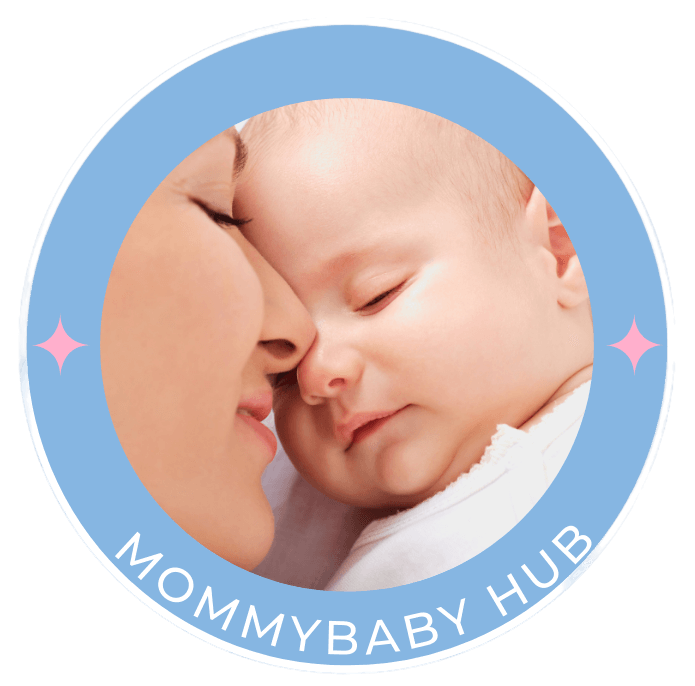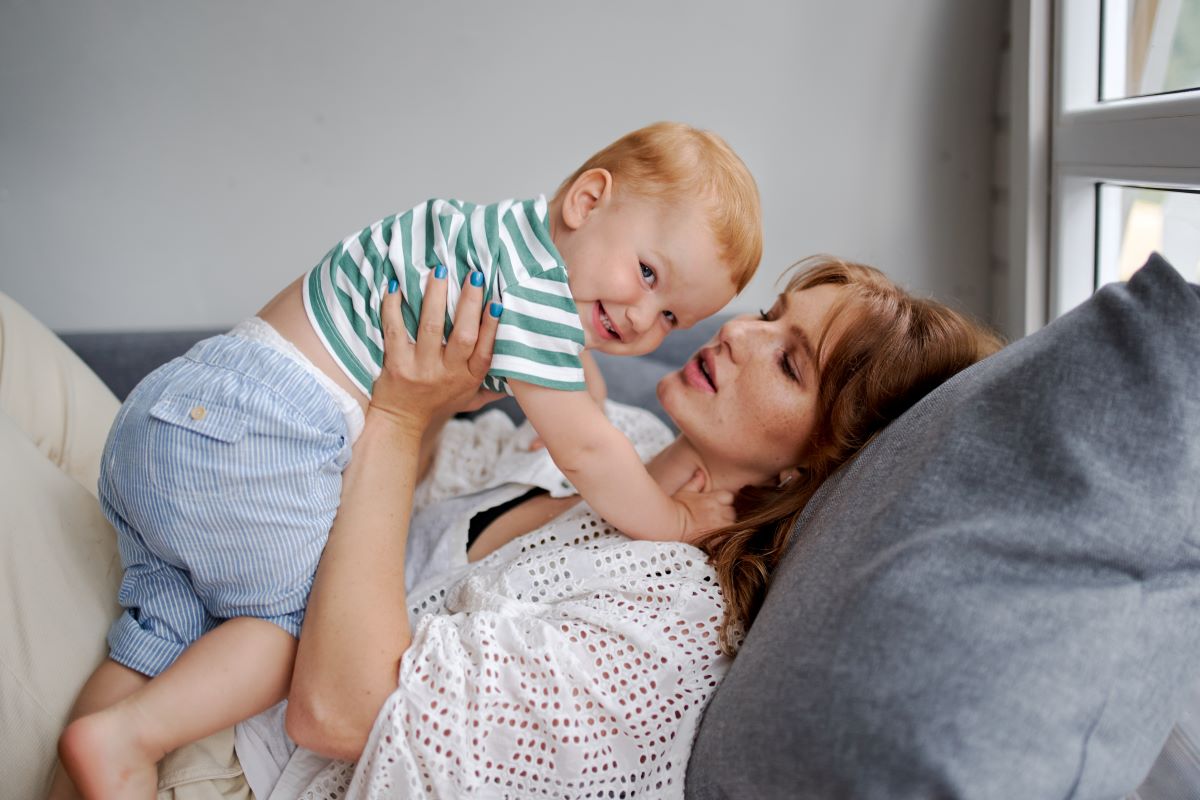When you and your child start to form a close attachment, this is known as bonding.
Bonding for most babies starts immediately after birth. This may not be the case for some parents as they may feel conflicted about it. Some parents experience intense attachment in the first few minutes of birth or days after. Others may have to wait a little longer.
Bonding with your baby is a procedure. It does not happen in minutes and does not have to happen in a specific time frame after giving birth. For most parents, bonding is a result of providing daily care for their baby. You might not realize it’s happening until you see how overwhelmed you are when you see your baby smiling.
What is Bonding?
Bonding is the strong attachment that forms between parents and their infant. Bonding allows babies to securely attach to their parents, allowing them to develop a sense of confidence.
It is through these initial parent-baby interactions that a baby learns to feel safe and confident around other people. As a result of your attention and care for them, they come to trust you. Thus, strong attachments between parents and infants increase the likelihood of the child growing up to be a trustworthy adult who enjoys being around others.
Why is Bonding with Your Baby Important?
A baby’s strong bond with parents is beneficial to their mental and interpersonal growth. It also assists them in developing trust and self-esteem. It’s also their first model for intimate relationships. In addition, it provides a sense of security. To you as a parent, bonding makes you feel more connected to your baby, which makes parenting easier and more enjoyable.
How to Bond with a Newborn
It’s true that soon after birth most newborns are awake and responsive. They are ready to bond with their parents. Thus, you can make eye contact with them while holding and cuddling them, conversing with them, and feeding them. Although these things may aid in the bonding process, there is no assurance that they will make you feel attached to your little one. Below are tips and activities that can help you bond with your baby.
Bonding Tips and Activities
- Touch and cuddles
Right away out of the womb, your newborn can sense even the lightest touch. When changing a diaper or bathing your child, try giving them gentle strokes.
As babies respond to skin-to-skin contact, touch develops into an early language. It promotes your baby’s healthy growth, attachment, and development while calming you and your baby.
- Hold your baby
Try rocking or cuddling your infant skin-to-skin. Alternatively, use a baby sling or carrier to carry your child. Holding them and giving gentle strokes will help in bonding and make both of you feel calm
- Talk to your baby
Maintain interaction throughout the day. Talk to your infant while holding them close and looking into their eyes to help strengthen your bond. Be just far enough for your baby to see your face. Tell him or her what you’re doing, thinking, and feeling.
- Sing songs and read to your baby
Bonding can also be in their first tries at communication because babies prefer human voices and enjoy vocalizing. Infants often find it entertaining just to listen to you reading to them and singing about their activities and surroundings.
- Give your baby a massage
Baby massage can strengthen the bond between a child and their parents. Skin-to-skin contact and eye contact serve to reinforce this.
Mothers with postpartum depression who struggle with attaching to their children may benefit from this bonding activity.
Feeding your baby is more than just nutrition. When your baby cuddles up next to you for bottle feeding or nursing, they can hear your heartbeat, smell the scent of you, and feel comforted by skin-to-skin contact. When feeding your baby, make sure to look directly into his or her eyes. Maintaining eye contact will make it easy for your baby to remember you and what you mean to them hence strengthening your bond.
- Respond when your baby is crying
Don’t be reluctant to attend to your baby’s needs. Be quick to calm them when they’re upset. You may not always be able to figure out why your baby is crying but by responding, you show your baby that you’re always there and help in building up your attachment.
Factors That May Affect Bonding Between Mom and Baby
Bonding may take shorter or longer due to a variety of reasons. Expectant parents may imagine their infant as having particular emotional and physical characteristics. When you first come face to face with your baby at birth, reality may force you to change your perception of him or her. Baby’s face is crucial to attachment and bonding since it serves as their primary form of communication.
Bonding can be greatly affected by hormones as well. While nursing a newborn during the first few hours after birth can promote bonding. It results in the release of a variety of hormones in mothers. When hormones are out of control or mothers are suffering from postpartum depression, it can be difficult for them to bond with their babies. Bonding may be delayed when a mother is in pain and tired after a long, challenging delivery.
You might be delayed to bond with your baby if they need to be in intensive care. However, developing a close relationship with your infant is still crucial. The staff at the hospital can assist you in caring for your infant through openings within a specialized nursery bassinet. The staff can assist you hold the baby once they are ready. You can take some time watching, talking, and touching your child in the meantime. Assuredly, the baby will soon recognize and react to your touch and voice.
Temperament is another factor that can affect how bonding with your baby goes. Some parents find it hard to deal with babies who seem to cry all the time. They find it difficult to bond with their children until they begin to experience some form of reciprocal communication from them–like when they begin to smile.
Loss of a previous pregnancy or another child. Because a mom doesn’t want to go through the pain of another loss, they might be reluctant to form an attachment with their baby.
Bonding with your newborn may happen immediately after birth or in the weeks that follow. Be patient. For some parents, bonding takes time and doesn’t always happen right away. Spend a lot of time touching your newborn’s skin, looking into their eyes, and conversing with them frequently to help you two become close. Reach out to your healthcare provider if, after a few weeks, you don’t feel any closer to your newborn. Your doctor will help get to the root cause of the problem and assist you bond with your little one.

